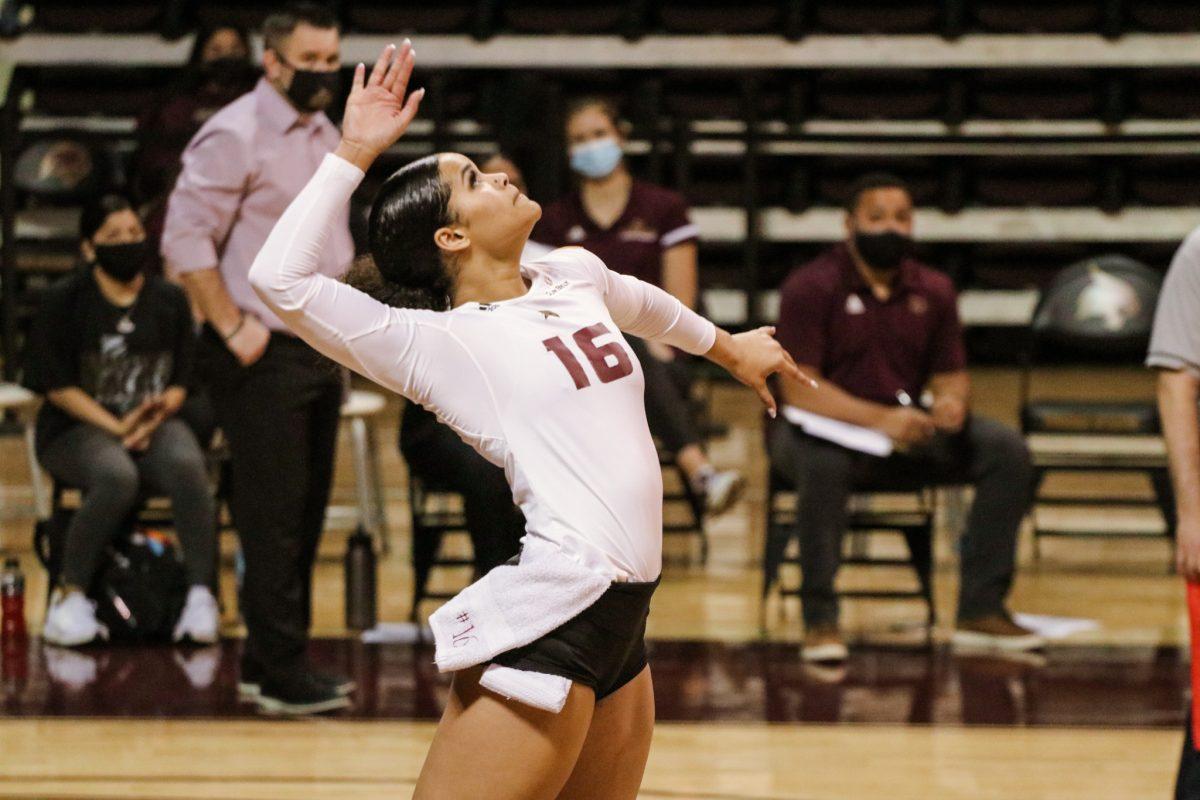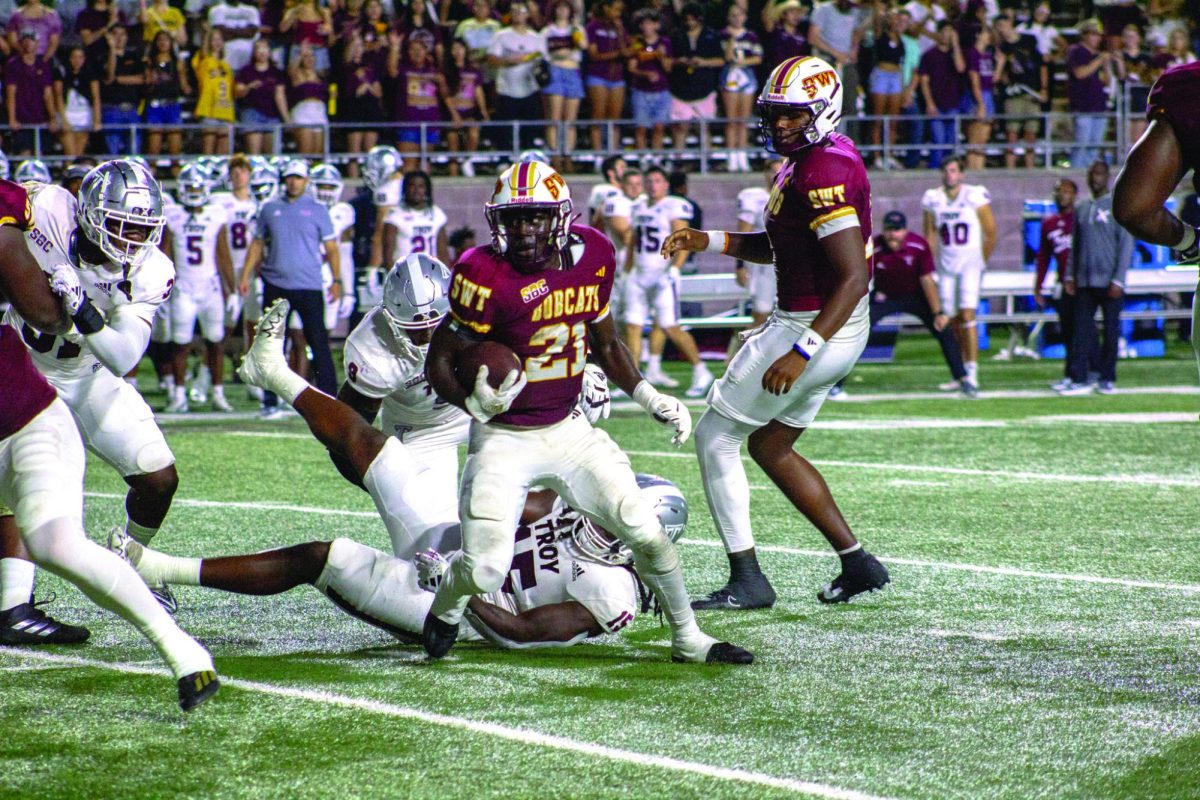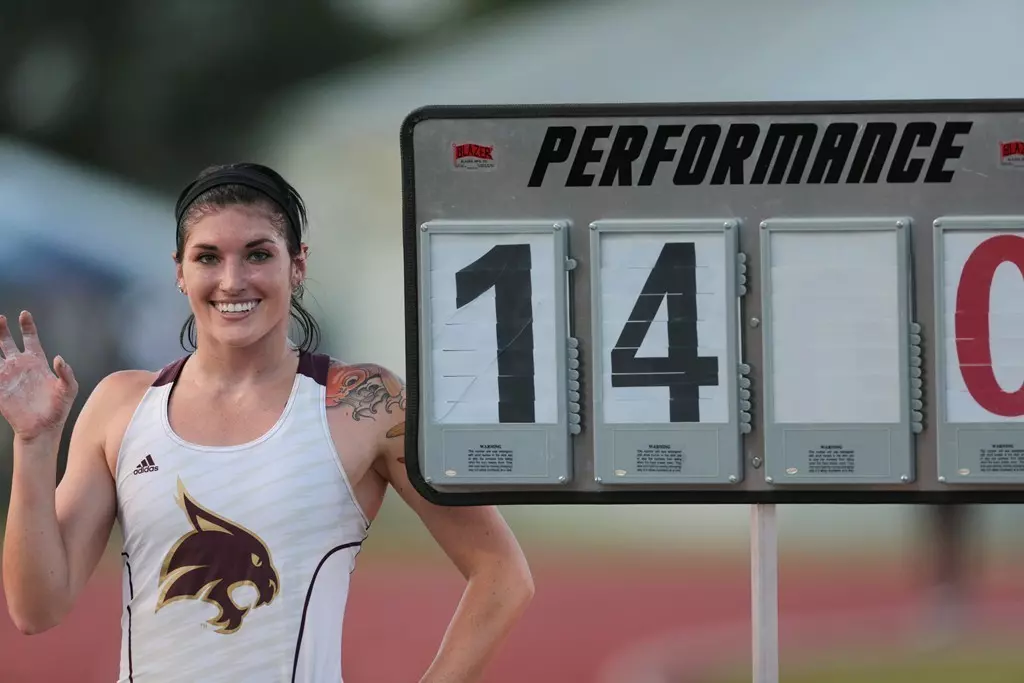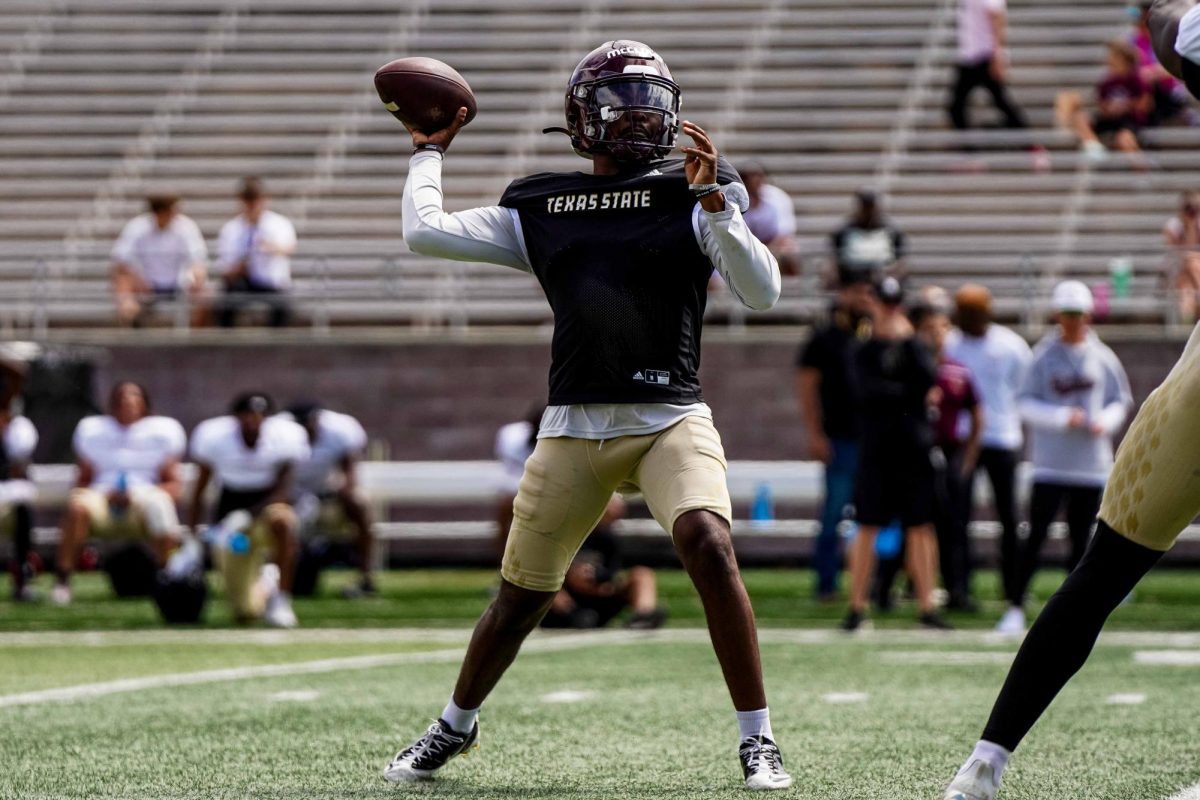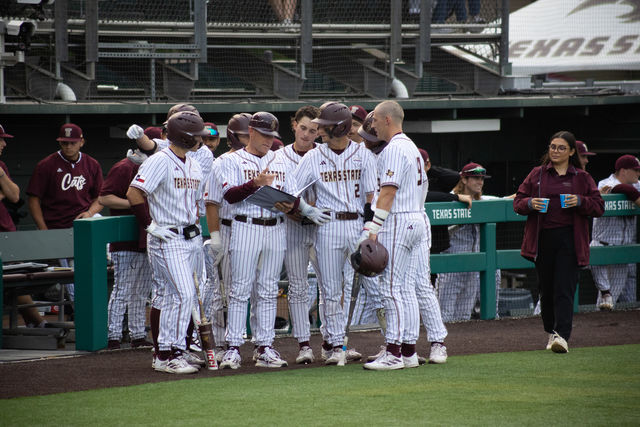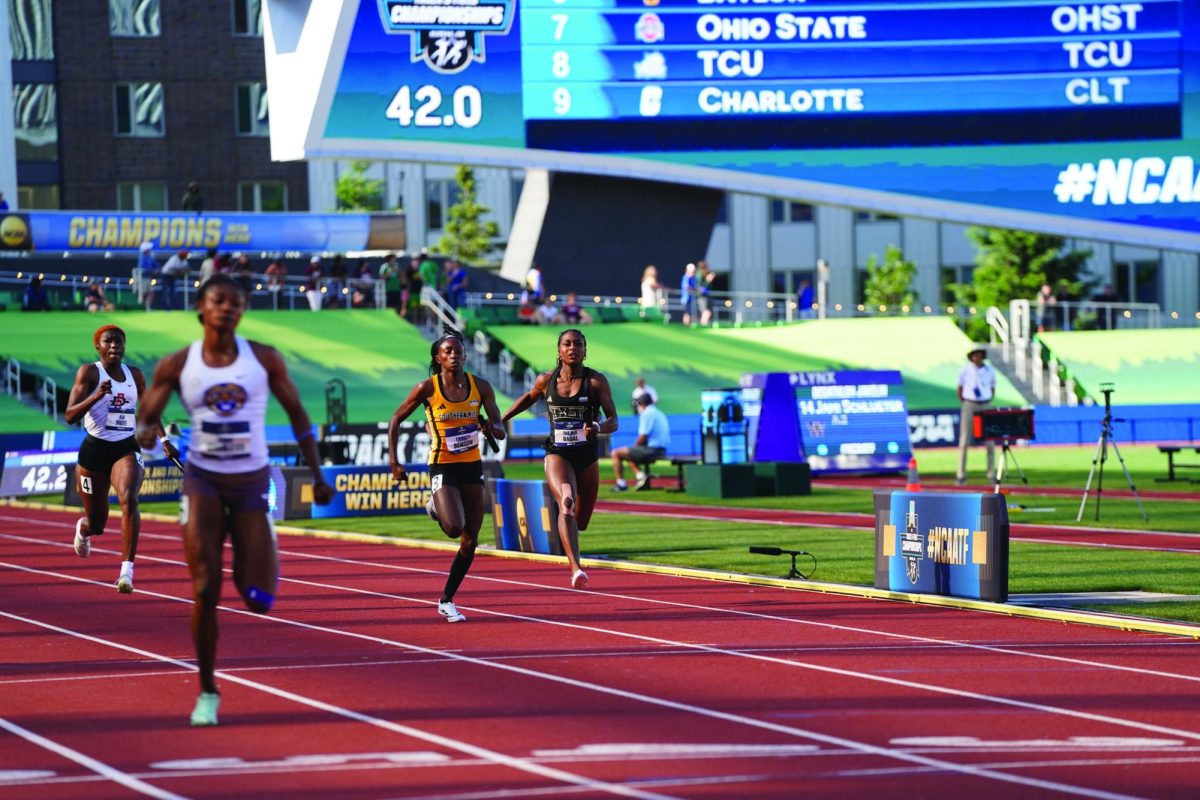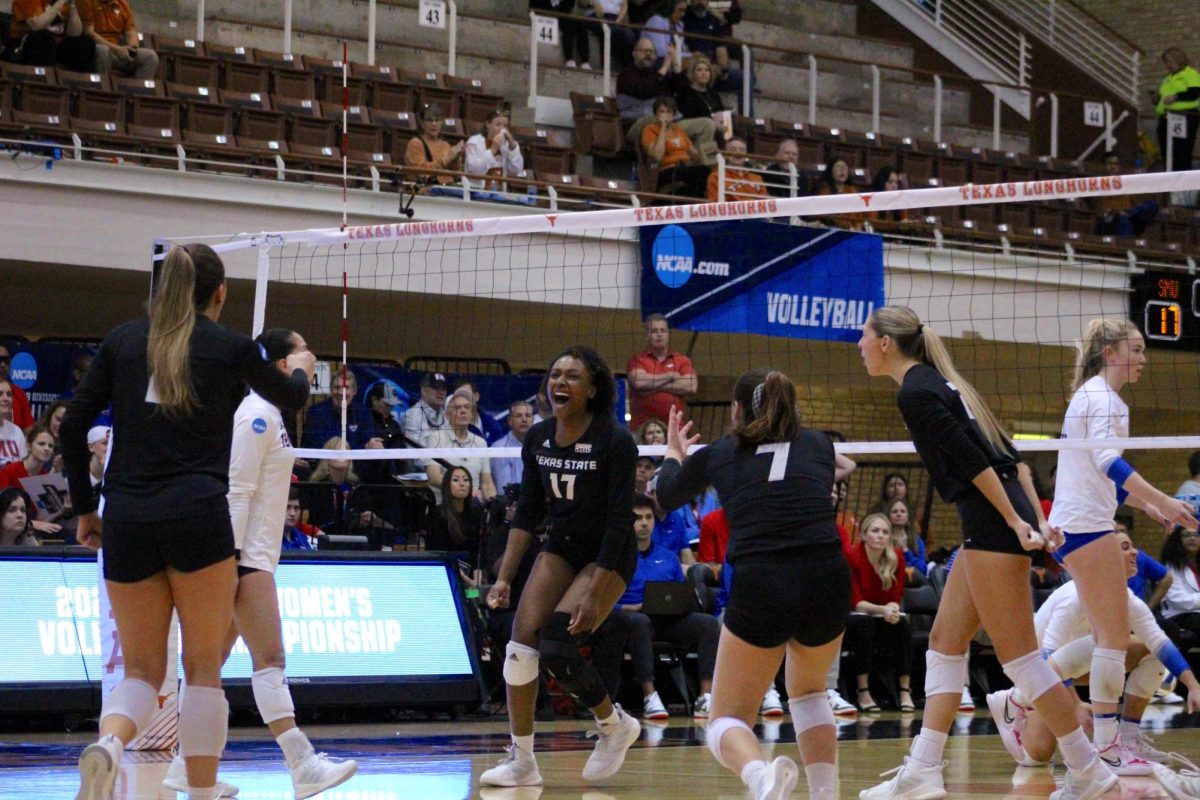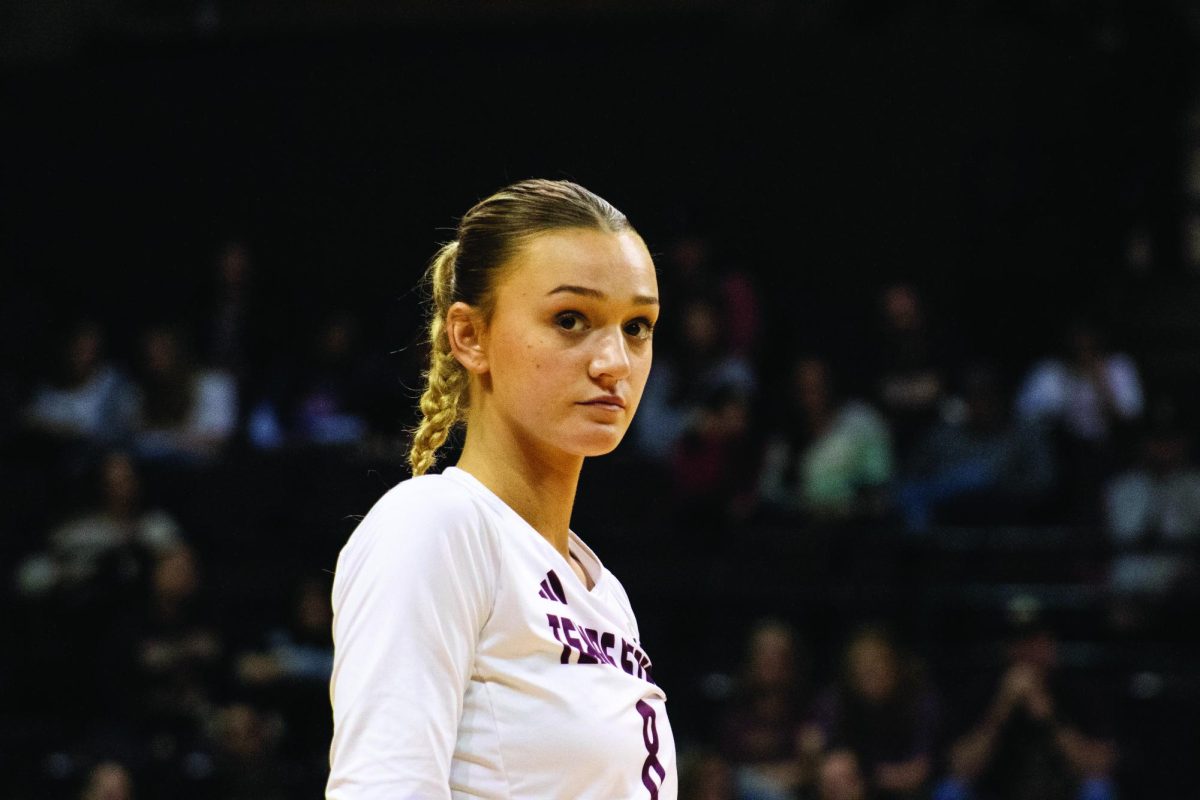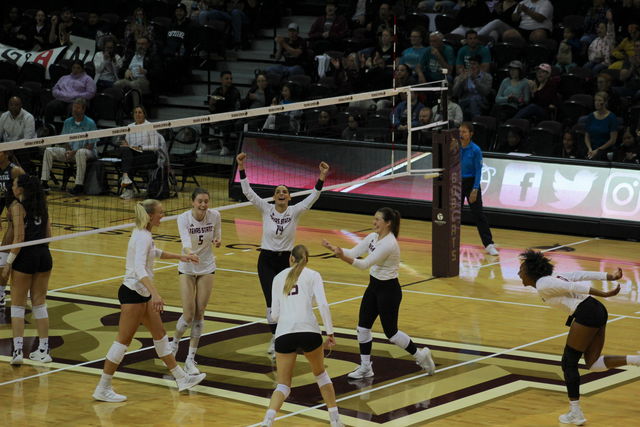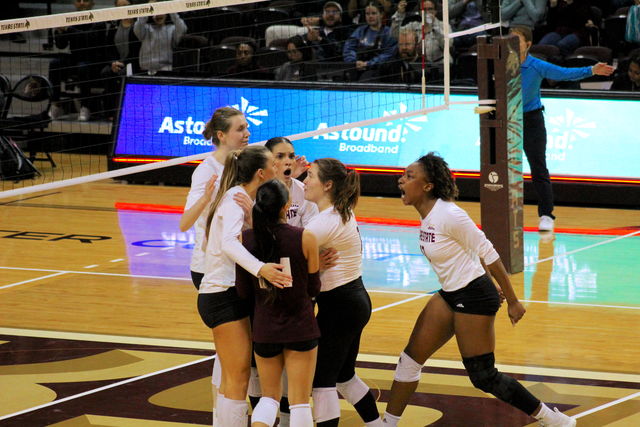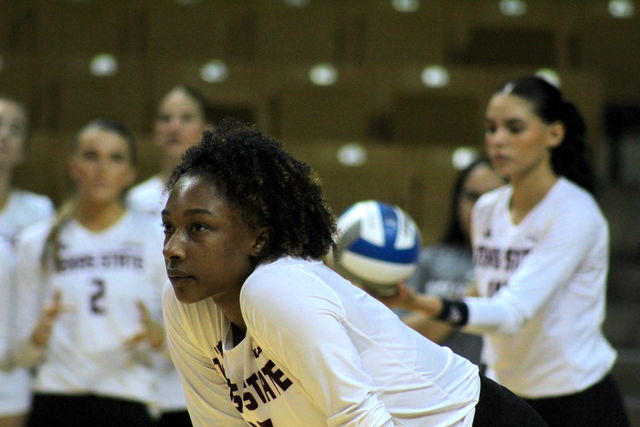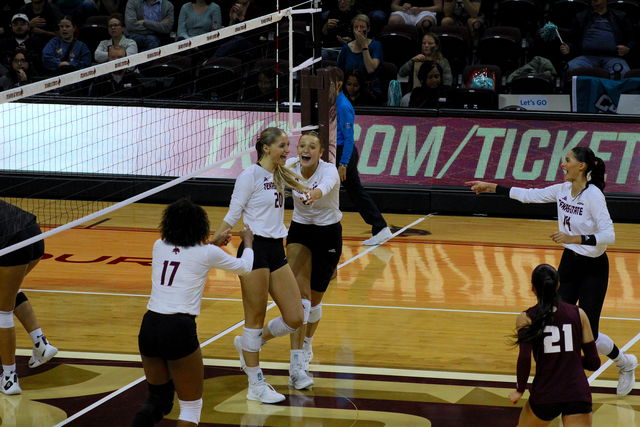As Texas State volleyball star Janell Fitzgerald enters her senior season, not only is she striving to become a four-time Sun Belt champion, she is also looking to promote herself and grow her brand in ways she was previously unable to.
On July 1 the NCAA, after years of deliberation, lifted its rules preventing athletes from profiting off of their name, image and likeness (NIL). Now, collegiate athletes, such as Fitzgerald, are able to sign endorsement deals and use their status as public figures to make money while still retaining their eligibility.
However, there are still some rules athletes must follow. For example, athletes cannot use any university branding or images in their own endorsements and must report all deals they engage in to their university to ensure they are within the NCAA’s requirements.
For Fitzgerald, the change in NIL rules is more than making money; it is about exercising her freedoms and preparing herself for the future after her collegiate career is done.
“Professional athletes are able to do it and they put just as much work in as we do,” Fitzgerald said. “I believe that we as [collegiate] athletes, I mean we work hard, we should be able to show how hard we work and be able to profit off of that.”
Since the rule change, Fitzgerald has launched her own line of merchandise and partnered with companies such as Crossnet, NovaShine along with various clothing and beauty brands, advertising products to her 119,900 TikTok followers and 18,300 Instagram followers.
Fitzgerald’s personality and energy seem to be what attracts companies to her. On the court, she is known for hyping up her teammates and has been credited with starting the dances the team does during breaks in the action.
“[Fitzgerald] has an infectious personality that just draws people to her,” said Sean Huiet, Texas State’s head volleyball coach. “If you know her or watch her social media you see why she has a lot of followers, she’s always dancing and having fun and enjoying life.”
Associate Athletics Director for Compliance Kelsey Solis, who oversees athletes and their compliance with NCAA and state rules, said Fitzgerald has been successful in her brand partnerships due to her work ethic.
“Even before the NCAA thought about name, image and likeness Janell was doing her own networking,” Solis said. “She has a large social media following. She has worked to build that following and to build her brand, I would even say outside of volleyball. She’s worked really hard to build that.”
In some ways, Fitzgerald is a pioneer in this new era of NIL. Before the NCAA rule change, Fitzgerald was invited to the Texas Capitol on May 6 to testify before a house committee about the issue of athletes making money while still in college.
Fitzgerald, who is also majoring in political science, said the experience was both exciting and intimidating.
“At first I was really super nervous but that only lasted for like an hour and then I realized how amazing of an opportunity it was and how much I could get my name out there,” Fitzgerald said. “To be able to represent other student-athletes in Texas is something that I was super excited for once I got over the nerves.”
The house committee wanted to hear from a student-athlete on the NCAA’s NIL rules and the first person Solis thought of was Fitzgerald due to her knowledge on the subject, her potential to benefit and her knack with people.
“I think she can, and she did speak on how this would affect her directly,” Solis said. “She was knowledgeable about the restrictions that the NCAA rules had on name, image and likeness and our student-athletes. She knew how she was being held back … she had firsthand experience.”
Huiet said that in her typical fashion, Fitzgerald did not initially see the trip as a big deal, she simply saw it as an opportunity to talk about her experience and how NIL rules impact college athletes in similar positions.
“Talking to [Fitzgerald], I think it ended up being a bigger thing than she ever thought it was,” Huiet said. “I think it was a pretty amazing life experience for her, not just what she initially thought it might be.”
For some, the concept of college athletes earning money off of sponsorships or endorsements takes away the appeal of college sports as athletes would no longer be considered “amateur”. Those in favor of the new NIL rules, however, see the changes as an opportunity for student-athletes to provide for themselves and prepare for life after college.
“One of the things that’s awesome is the money they can make because a lot of the times we are asking our athletes to do a lot,” Huiet said. “That nice little extra benefit I think helps take care of them and takes care of some of the extra costs. Even though we are paying for school and paying for most of that there are other expenses. It just helps them balance that, especially for some athletes that aren’t on scholarship.”
Huiet said the only time he would have a problem with athletes working with brands and exploring opportunities is if it interfered with their commitment to volleyball activities.
“Even for Janell, who is probably our most profitable one with it, it hasn’t overtaken her life,” Huiet said. “It hasn’t changed who she is in the gym, she isn’t more focused on that than winning volleyball games. If it ever started to interfere there, that’s when I would have a hard time with it but right now we aren’t seeing that.”
While Fitzgerald recognizes the value of her new endeavors, it has not been an easy journey. She is becoming aware that life as an athlete and a budding social media influencer is a lot of work.
“It’s actually very hard, I can’t lie it’s not easy at all,” Fitzgerald said. “It’s a second job. A lot of my free time I did have in the past is now going toward this. Especially since I don’t have an agent representing me right now. But, it’s something that I’m passionate about so I’m willing to keep doing it.”
While she is unsure of exactly what she will pursue once her time at Texas State is over, she is certain that she will continue to use the skills she is learning now and perhaps translate them into a future career.
“My plans after college are still up in the air,” Fitzgerald said. “I definitely want to continue my marketing and pursue marketing a lot more because I have the experience now. I know the ins and outs of the business side from marketing myself through social media. I think that will be a great way to start my career.”
Volleyball star capitalizes off of name, image, likeness
September 8, 2021
Texas State junior outside hitter Janell Fitzgerald (16) prepares to serve the ball to the waiting Baylor defense during the game, Wednesday, March 10, 2021, at Strahan Arena. The Bobcats lost 3-0.
Donate to The University Star
Your donation will support the student journalists of Texas State University. Your contribution will allow us to purchase equipment and cover our annual website hosting costs.











